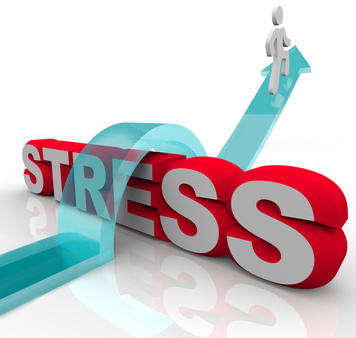Stress is an omnipresent aspect of contemporary life, a burgeoning health crisis that transcends temporal and geographic boundaries. Its insidious nature infiltrates everyday existence, often leaving individuals in a state of perpetual disquietude. The Bahá’í teachings proffer a holistic perspective that not only elucidates the ramifications of stress but also furnishes practical avenues for its management and mitigation. This discourse aims to delineate the intricate interplay between stress and the human experience, illuminating the Bahá’í principles that advocate for personal and communal resilience.
At the outset, it is paramount to delineate the conceptual framework within which stress is understood. According to contemporary psychology, stress can be classified into acute and chronic forms. Acute stress manifests in immediate responses to external stimuli, often resulting in heightened alertness and temporary discomfort. Conversely, chronic stress persists over prolonged durations, eroding one’s physical and mental health, culminating in conditions such as anxiety disorders and cardiovascular maladies. The Bahá’í perspective underscores the profound implications of both types of stress, viewing them through the prism of spiritual well-being, social cohesion, and individual development.
Utilizing the Bahá’í teachings as a lens, one can appreciate the spiritual dimensions of stress. The teachings emphasize that the human spirit thrives in an environment of tranquility and unity. Stress disrupts this equilibrium, fostering discord within oneself and in relationships with others. The Bahá’í principle of the oneness of humanity serves as a crucial antidote to the divisive nature of stress. When individuals and communities unite in a spirit of cooperation and service, the burdens of stress are alleviated through collective support and shared purpose.
Moreover, the Bahá’í teachings advocate for the cultivation of virtues as a fundamental approach to managing stress. Attributes such as patience, resilience, and compassion can be cultivated, allowing individuals to navigate life’s vicissitudes with greater equanimity. The practice of reflection is also extolled; engaging in introspection enables a deeper understanding of one’s internal responses to stress, fostering emotional intelligence and fortitude.
In addressing the physiological implications of stress, the Bahá’í writings acknowledge the interdependence of body and spirit. Chronic stress is not merely an emotional weight but manifests physically, impairing immune function and exacerbating chronic illnesses. Thus, Bahá’í principles encourage physical well-being as a means of counteracting stress. Engaging in regular exercise, balanced nutrition, and sufficient rest are not merely recommendations but essential components of a holistic lifestyle. The teachings urge adherents to recognize that care for the body is intrinsically linked to spiritual health, creating a virtuous cycle that promotes overall resilience.
Furthermore, one cannot overlook the profound impact of community engagement on stress reduction. The Bahá’í community operates under the premise that individuals flourish when engaged in meaningful service to others. This engagement could manifest in volunteer work, participation in community events, or simply lending a listening ear to someone in distress. Serving one’s community engenders a sense of belonging and purpose, effectively diffusing stress through shared experiences and collective endeavors.
In addition to communal support, the Bahá’í teachings elucidate the importance of prayer and meditation as vital tools for managing stress. These practices facilitate a connection to the Divine, providing solace and perspective amid life’s tumultuousness. Engaging in daily prayers, reciting sacred writings, or practicing mindfulness meditation allows individuals to transcend their immediate stressors, anchoring them in a deeper understanding of existence. Through such spiritual practices, adherents can cultivate a sense of inner peace that acts as a buffer against external pressures.
On an intellectual level, grappling with the concept of stress can also encourage a re-evaluation of personal goals and life’s purpose, aligning one’s ambitions with the broader principles of the Bahá’í Faith. Increased awareness of the transient nature of stress can inspire individuals to cultivate a mindset rooted in gratitude rather than anxiety. Acknowledging the positive aspects of life amidst challenges—such as the beauty of human connection or the joy of learning—can shift one’s focus, thereby diminishing the perceived weight of stress.
Recognizing the multifaceted character of stress, the Bahá’í teachings present a call to action for both the individual and the community. It is imperative to foster an environment that prioritizes mental and emotional wellness, where discussions surrounding stress and mental health are destigmatized. By educating communities about stress and its effects, initiatives can be developed to support those grappling with its debilitating impacts.
To summarize, the Bahá’í teachings present a comprehensive and multifarious approach to understanding and managing stress, allowing one to navigate the complexities of modern life with grace and fortitude. By integrating spiritual practices, community service, and personal development, individuals can cultivate resources that not only address their own stress but contribute to the broader goal of spiritual and societal advancement. In confronting stress as a new health crisis, the Bahá’í Faith offers enduring wisdom that inspires both individual transformation and collective responsibility in pursuit of a harmonious and flourishing existence.
